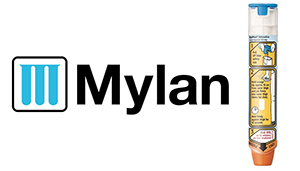 Prescriptions for EpiPen alternatives such as Kaléo Inc.‘s Auvi-Q device have quadrupled since the beginning of this year, according to data from the Athenahealth Network. The demand for cheaper alternative devices is likely driven by revelations that Mylan (NSDQ:MYL) hiked the price of its EpiPen emergency allergy injector by 500% since it acquired the device in 2007.
Prescriptions for EpiPen alternatives such as Kaléo Inc.‘s Auvi-Q device have quadrupled since the beginning of this year, according to data from the Athenahealth Network. The demand for cheaper alternative devices is likely driven by revelations that Mylan (NSDQ:MYL) hiked the price of its EpiPen emergency allergy injector by 500% since it acquired the device in 2007.
Generic options for the injector were sparse until Kaleo’s product was re-released in mid-February this year. Mylan launched a generic version of its own device in December last year at half the price of the original and CVS said in January that it will stock Impax Laboratories‘'(NSDQ:IPXL) $10 EpiPen alternative known as Adrenaclick.
Researchers examined more than 60,000 prescriptions for epinephrine auto-injectors between January 2016 and February this year, Athenahealth reported. At the end of last year, EpiPen alternatives comprised just 5.3% of prescriptions for the emergency allergy treatments. By the last week of February, that number grew to nearly 30%.
Some states, including Ohio, New York, Vermont and New Jersey, introduced legislation last week to make it easier for pharmacists to dispense the substitute products.
The newly-introduced bills would allow pharmacists to substitute the pricey EpiPen device for cheaper alternatives without requiring a new prescription written by a physician.
Mylan said in January that it is undergoing an antitrust probe by the Federal Trade Commission into the company’s commercial practices regarding its EpiPen device.
The Canonsburg, Pa.-based company reportedly responded to the allegations that it improperly fought off competition, saying “any suggestion that Mylan took any inappropriate or unlawful actions to prevent generic competition is without merit.”
Mylan has repeatedly challenged rival Teva Pharmaceutical‘s (NYSE:TEVA) efforts to gain regulatory approval for its generic EpiPen device, asserting that Teva’s version is not an exact copy – it has 2 caps, which is not identical to Mylan’s single-cap device. The company argued that because of the design difference, a distressed patient may not be able to quickly use Teva’s version if they were trained to use Mylan’s device.
Last year, the FDA rejected Teva’s application for approval.

